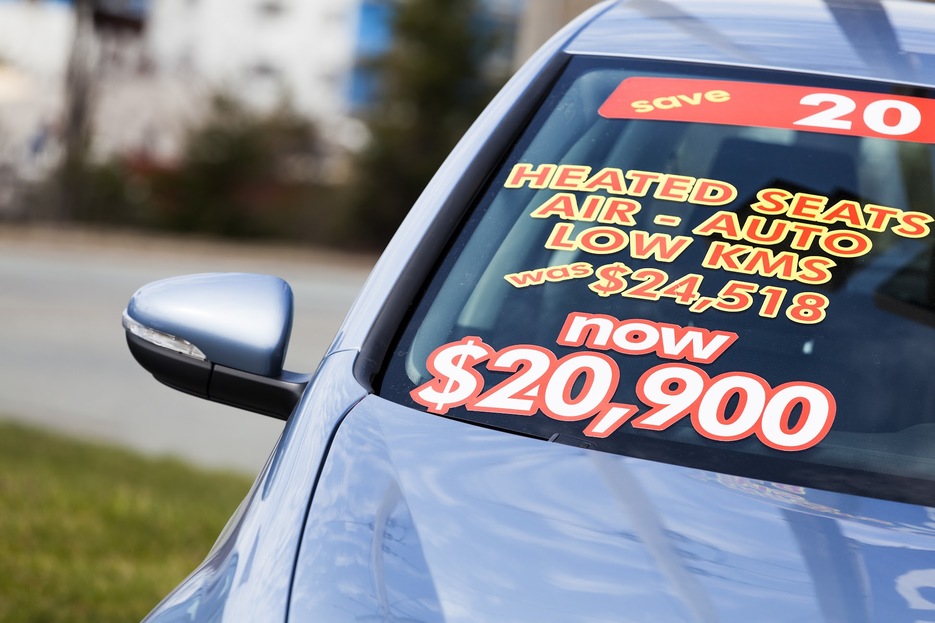The most dangerous second-hand cars revealed

The Club’s 2021 Used Car Safety Ratings Buyer’s Guide* examined real-world crash data involving 290 second-hand cars to find the safest and most dangerous makes and models.
The release of the data coincided with a surge in demand for used-cars, with three out of four vehicles purchased in Australia second-hand.
RACQ’s Lauren Ritchie said 121 vehicle models were rated as either very poor or poor, earning just one or two stars for safety.
“This includes many popular family sedans and SUVs, as well small vehicles, which are often the car of choice for many novice drivers,” Ms Ritchie said.
“The Mitsubishi Magna (2003-2005), Suzuki Grand Vitara (1998-2005) or Nissan Micra (2011-2016) are among the worst cars for safety earning one-star, compared with the Mitsubishi Outlander (2006-2012) or Toyota Prius 3 (2009-2016) which are top performers.
“The data reveals those behind the wheel of the most dangerous used-cars are at least eight times more likely to be killed or seriously injured in a crash than those in a five-star car.
“Cars with the lowest star rating were found to pose a danger to drivers, passengers and other road users like cyclists and pedestrians due to their lack of protection and safety technology.”
Ms Ritchie said COVID-19 had impacted the supply of new vehicles and had pushed up the price of second-hand cars.
“This means some Queensland families may no longer be able to afford the used-car they first wanted and may need to opt for an older model,” she said.
“While the newer the car, the safer it is, we recognise cost is also an important factor. Use our guide to ensure you prioritise safety as well as budget.”
For the full list of vehicle ratings visit: Used Car Safety Ratings - Buying a Car - RACQ.
*RACQ is part of the Vehicle Safety Research Group which commissioned the research from Monash University and is comprised of the major motoring clubs and transport agencies in Australia and New Zealand.
Related topics
Things to note
The information in this article has been prepared for general information purposes only and is not intended as legal advice or specific advice to any particular person. Any advice contained in the document is general advice, not intended as legal advice or professional advice and does not take into account any person’s particular circumstances. Before acting on anything based on this advice you should consider its appropriateness to you, having regard to your objectives and needs.
Insurance Products (excluding Travel Insurance) are issued by RACQ Insurance Limited ABN 50 009 704 152 (RACQI) and arranged by its agent, RACQ Distribution Services Pty Ltd (RDS) ABN 35 116 361 650, AFSL 567130 and RDS' authorised representatives (including RACQ Operations Pty Ltd ABN 80 009 663 414, AR No. 234978 (RACQO). Conditions, limits and exclusions apply. RDS and RACQO are in the RACQ group of companies. One of the companies in the RACQ group of companies has a minority shareholding in RACQI.
RDS and RACQO have not taken your personal objectives, circumstances or needs into account when preparing advice regarding insurance products and you will need to consider whether the advice is appropriate for you. Read the Product Disclosure Statement (PDS) and any applicable Supplementary PDS before making a purchase decision on this product. You can also access our Target Market Determinations on this website. RDS receives a commission from RACQI for the policies it arranges. RACQO receives fees paid for services it provides to RDS. Further details about remuneration are available on request prior to purchasing.
Banking and loan products issued by Members Banking Group Limited ABN 83 087 651 054 AFSL/Australian credit licence 241195 trading as RACQ Bank. Terms, conditions, fees, charges and lending policies apply. This is general advice only and may not be right for you. This information does not take your personal objectives, circumstances or needs into account. Read the disclosure documents for your selected product or service, including the Financial Services Guide and the Terms and Conditions, and consider if appropriate for you before deciding.
Except for RACQ Bank, any RACQ entity referred to on this page is not an authorised deposit-taking institution for the purposes of the Banking Act 1959 (Cth). That entity’s obligations do not represent deposits or other liabilities of RACQ Bank. RACQ Bank does not guarantee or otherwise provide assurance in respect of the obligations of that entity, unless noted otherwise.
RACQ Bank subscribes to the Customer Owned Banking Code of Practice which establishes higher standards than the law requires. The Code reflects modern consumer expectations and developments in approaches to issues such as consumer vulnerability, guarantors, and supporting customers through financial hardship. Please read our Customer Owned Banking Code of Practice page for more information.
RACQ Operations Pty Ltd (ABN 80 009 663 414 AR 000234978) and Members Travel Group Pty Ltd (ABN 45 144 538 803 AR 000432492) are acting as an Authorised Representative of the issuer of the insurance, Tokio Marine & Nichido Fire Insurance Co., Ltd. (ABN 80 000 438 291 AFSL 246 548). Any advice set out above is general in nature only, and does not take into account your objectives, financial situation or needs. Before purchasing any travel products, please consider the RACQ Travel Insurance Product Disclosure Statement (PDS) and the Target Market Determinations (TMDs) that apply to these products. Whilst the PDS outlines the Terms and Conditions of these products, the TMDs outline the intended class of customers that comprise the target market for these travel products. This will allow you to consider which products best suit your objectives, financial situation and needs and consider the products appropriateness to your personal circumstances. TMDs also outline matters involving the distribution and the review of these products. The PDS, Supplementary PDS and TMDs for each travel product can be found here.
